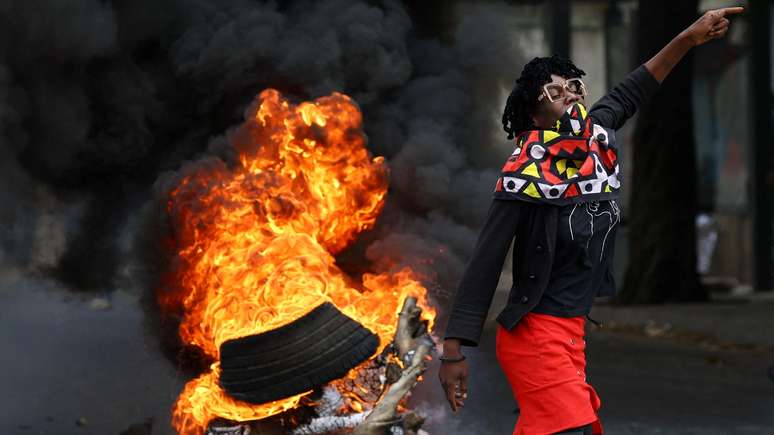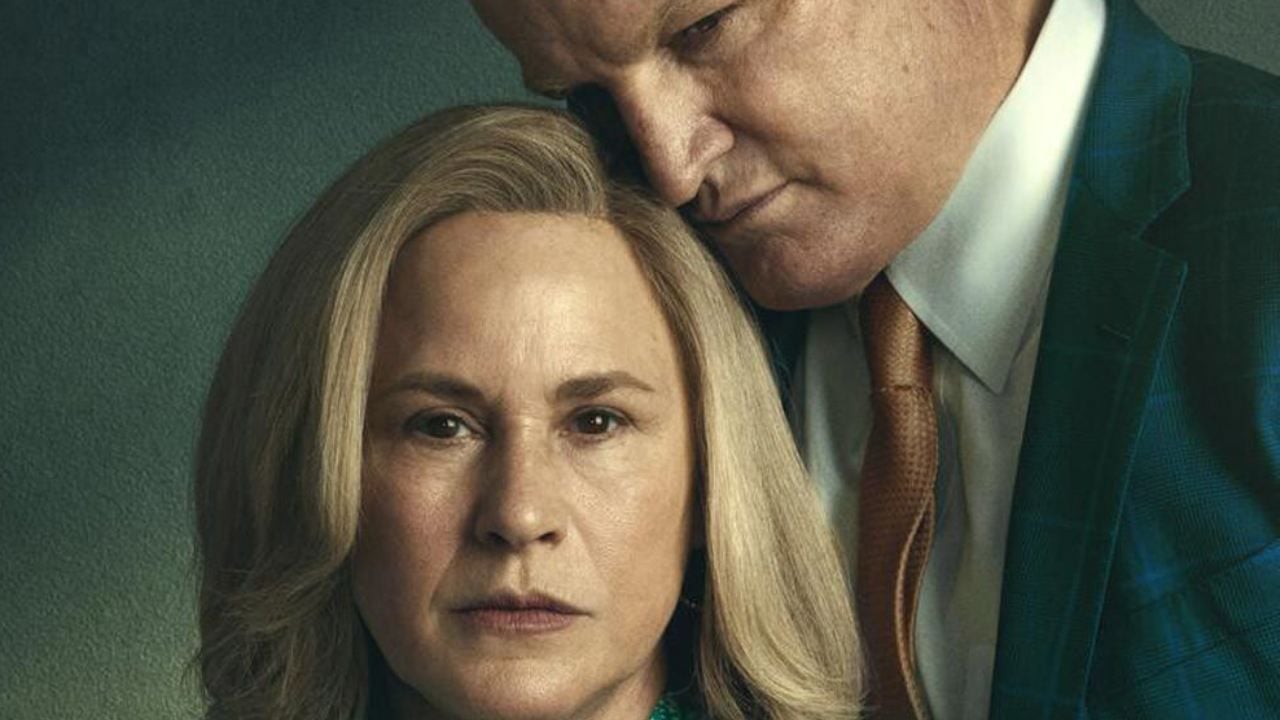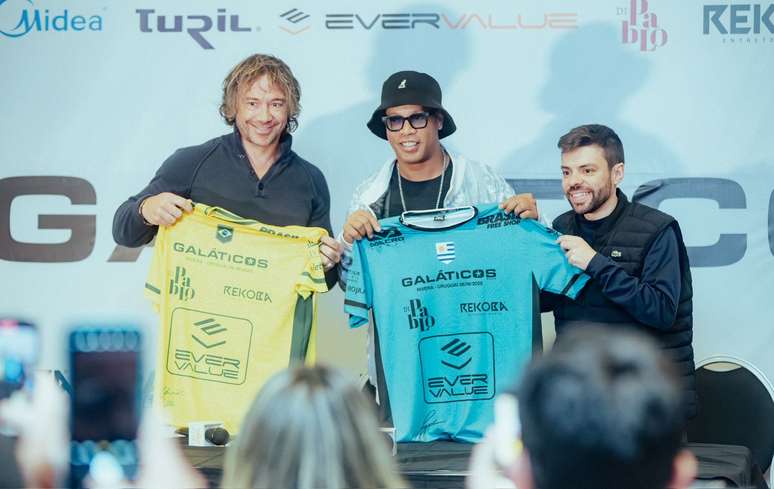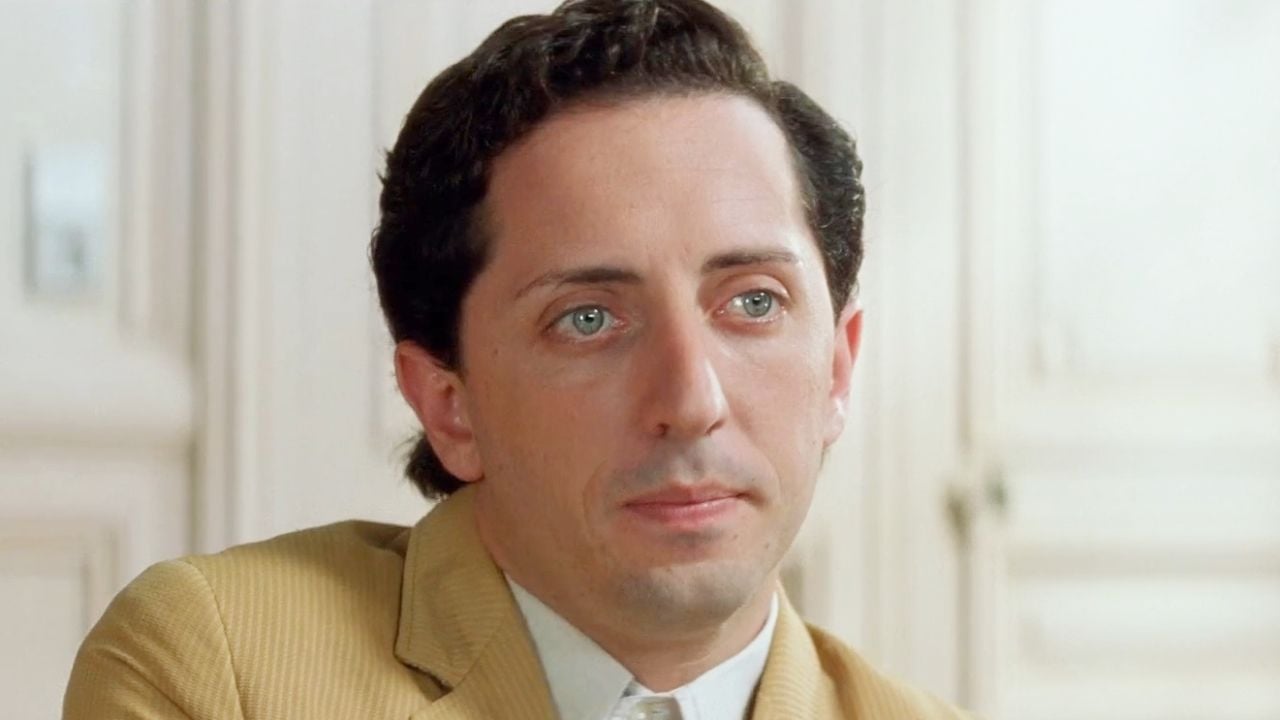With dozens of deaths, the acts accusing the government of electoral fraud were denounced by presidential candidate Venâncio Mondlane, a figure who managed to catalyze the population’s dissatisfaction with the country’s living conditions
“Fifteen years ago Mozambique was projected by the International Monetary Fund [FMI] as a country that, at this point, would be middle income. Today we are immersed in a terrible crisis, with no prospects.”
The statement by political scientist and professor Adriano Nuvunga, director of the Center for Democracy and Human Rights (CDD), in Maputo, in a certain sense sums up the dissatisfaction of Mozambicans that has spilled onto the streets of the country in recent weeks.
Since the results of the presidential election were announced on October 21, thousands of people have marched or banged pots in their homes almost every day.
They accuse the country’s authorities of having manipulated the result which declared the winner, with 70% of the votes, the government candidate Daniel Chapo, of the Mozambique Liberation Front (Frelimo), the party that has governed the country for 50 years. since the independence of Mozambique.
Election observation missions, such as that of the European Union, have called for greater transparency from the government in publishing the results, which, according to observers, featured “irregularities during the counting”.
The acts, denounced by the opposition candidate, second in the elections, Venâncio Mondlane, evangelical leader of the Podemos party, were repressed by the security forces.
According to the country’s human rights organizations, such as the CDD, more than 50 people have already died during the acts and thousands have been injured.
But, in addition to the dispute over the results of this year’s elections, the demonstrations in the third Portuguese-speaking country in the world (after Brazil and Angola) have brought a revolt to the streets over the country’s economic situation, explains political scientist Fidel Terenciano, director of ‘Institute of NGOs for economic and social development (Ides).
“The demonstrations clearly indicate that levels of social, economic and political discontent have increased on a large scale in recent times,” says Terenciano.
“People were looking for an outlet to go out into the streets and challenge the constraints they feel about life.”
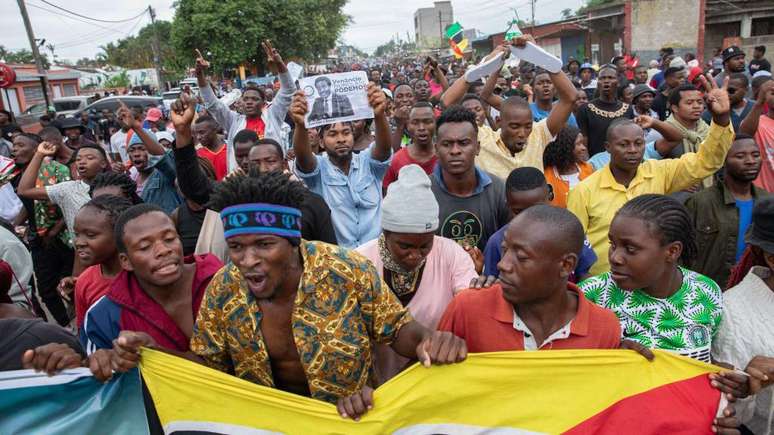
Election contested by a “charismatic” leader.
Immediately after the announcement of the results by the National Electoral Commission (CNE), Mozambicans began to take to the streets.
Many say they are dissatisfied with the successive administrations of Frelimo, the movement that fought for independence and ended Portugal’s rule that lasted more than 400 years, in 1975, in the so-called “armed struggle for national liberation”.
The organization emerged as a left-wing guerrilla movement against Portuguese rule and was founded in 1962, a merger of Mozambican political groups formed in exile, mostly in Tanzania.
Frelimo had the support of countries with anti-Western governments such as China and the then Soviet Union.
With independence it became a de facto political party, with a Marxist tendency, and assumed power in the new nation as a single party.
But times of peace in this country, which needed to rebuild and establish itself as a new nation, were short-lived.
In the early 1980s, the country began to experience a new armed conflict, this time between Frelimo and the National Resistance of Mozambique (Renamo), an anti-communist movement that had the support of neighboring countries that feared left-wing ideology , such as Rhodesia – now Zimbabwe – and South Africa, under the apartheid regime.
The civil war lasted until 1992, when a peace agreement was signed and the country began to have multi-party rule.
The first elections were held in 1994, with the victory of Frelimo. The left-wing movement was declared the winner of every subsequent election, with frequent accusations of fraud in vote counting.
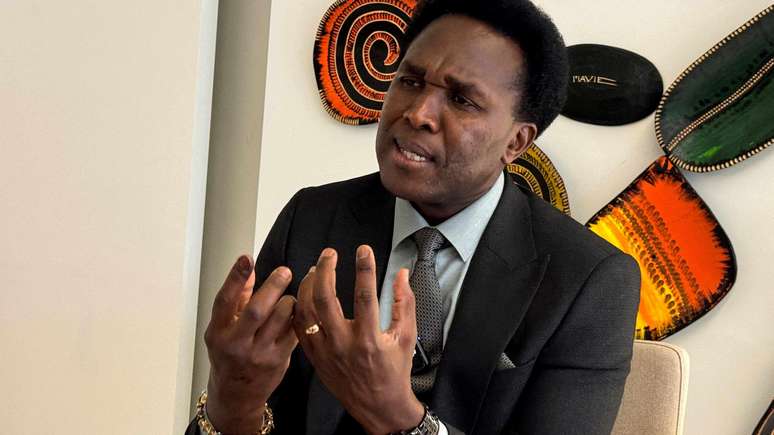
In all elections Frelimo and Renamo were protagonists of the dispute. But, in 2024, a new figure has emerged: Venâncio Mondlane, a charismatic evangelical leader who until recently was not known nationally.
According to the CNE, Daniel Chapo, of Frelimo, was elected president with 70% of the votes. He would be the first president of the country born after independence and gives a speech in which he calls for “unity”.
Mondlane would have received 20% of the vote. The politician is a former member of Renamo, but, after internal disagreements, he moved to Podemos.
In Brazil he stands in solidarity with former president Jair Bolsonaro (PL), whom he once called “man of God” and “Brazil’s hope.”
According to government opponents and election monitoring organizations, the CNE is now almost entirely controlled by Frelimo, although the opposition has some representatives.
The electoral consortium Mais Integridade, made up of various civil society groups, accuses the registration of ghost voters and people who have cast paper votes several times at the polls.
Another group that monitors Mozambican politics, the Center for Public Integrity (CIP), said that this election was “the most fraudulent since 1999 because Frelimo took control of the entire electoral process.”
According to Adriano Nuvunga, Frelimo’s numbers were shocking because, even in times of economic growth, the party did not obtain 70% of the votes.
“This insults the mind of any Mozambican. All elections in Mozambique have been fraudulent since 1999, there is no doubt about that,” he says.
For Nuvunga, Venâncio Mondlane became a phenomenon because he managed to break the dichotomy between Frelimo and Renamo that dominated the country, giving voice to the population’s dissatisfaction.
Mondlane made calls online and did not appear publicly, claiming he feared for his safety after his adviser and lawyer were killed as they prepared to contest the results in Maputo, the country’s capital. The government has denied a political link to the deaths.
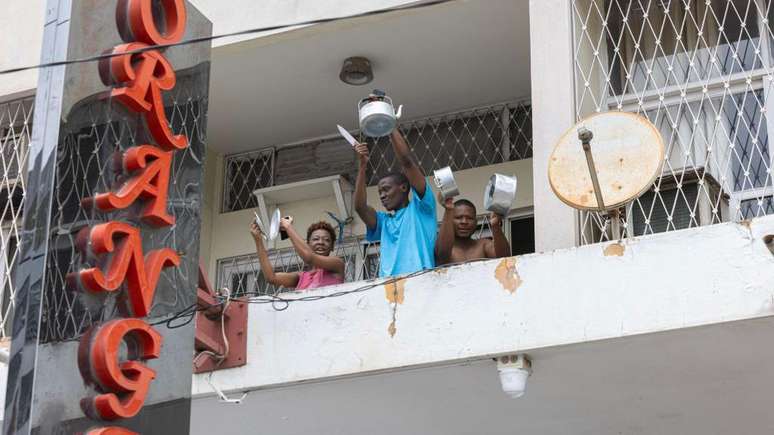
Opposition and observation missions require the CNE to present voting minutes, detailed using voting tables.
An impasse similar to that of Venezuela, where the electoral body did not provide details after reporting the re-election of Nicolás Maduro.
At a press conference, a Frelimo spokeswoman said there was “a movement to remove from power the parties that liberated some countries on the African continent, through a coup and this could be the case in Mozambique.”
The party said the country possesses “natural resources that some countries covet.”
Since the wave of demonstrations began, social networks such as WhatsApp, Instagram and Facebook have been restricted in the country, according to internet monitor Netblocks. Mobile data networks also saw fluctuations.
The government has not commented on allegations that it deliberately restricted internet access to hinder protesters’ ability to coordinate.
BBC News Brasil attempted to contact Frelimo and CNE, but received no response until the publication of this report.
In a press release, the Mozambican government said it “recognizes the right [de protesto] sanctioned by the Constitution of the Republic and other legal instruments, instead deplores the involvement of children and the attempt to subvert the democratic order”.
The Brazilian Foreign Ministry said it was concerned about the post-election violence and recalled “the right to freedom of assembly and demonstration”.
Indices among the worst in the world
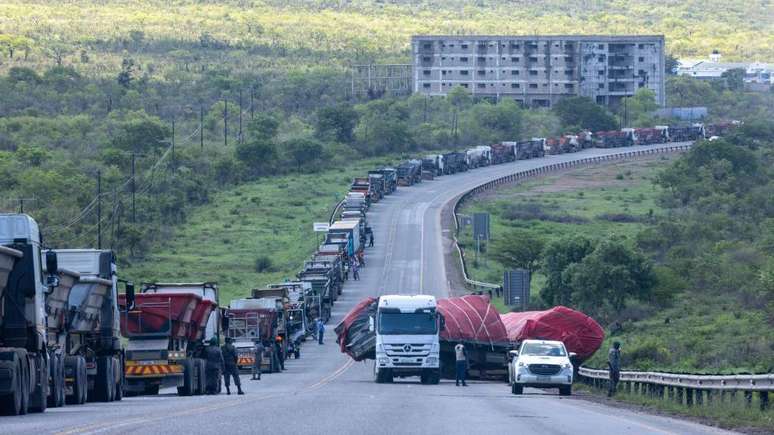
The protests in Mozambique have decreased in size in recent days, but are causing economic consequences, such as the closure of the border with South Africa, in a country already suffering from the economic situation.
According to the World Bank, Mozambique experienced strong economic growth until 2016, with an average growth rate above 7%.
However, public debt crises, cyclones that destroyed part of the country’s already precarious structure and the Covid-19 pandemic have reversed the reduction in poverty.
Mozambique’s Human Development Index (HDI) is the 11th worst in the world out of 193 countries.
According to the World Bank, GDP per capita (the wealth produced in the country divided by the number of inhabitants) is the sixth worst in the world.
Life expectancy is only 58.3 years, almost 20 years less than in Brazil.
In the corruption perception index of the NGO Transparency International, the country appears 145 out of 180 countries.
These very low rates, according to political scientist Adriano Nuvunga, were reflected in the demonstrations, where people also carried posters complaining about the living conditions in the country, the lack of work and opportunities for young people.
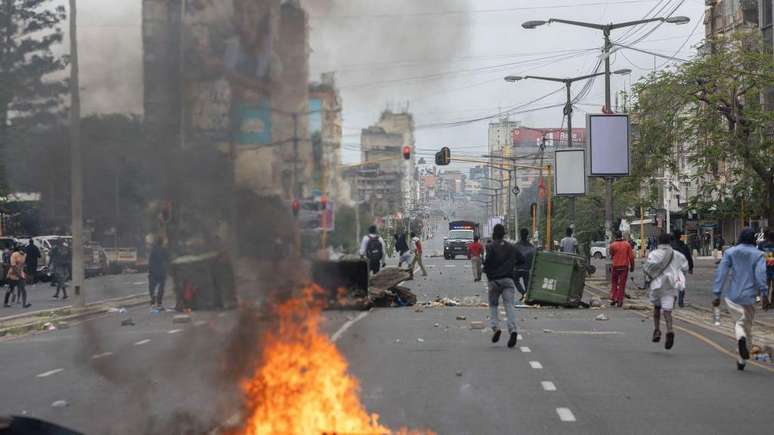
“The State of Mozambique is going through a financial crisis. Millions of Mozambicans have become poor and unemployed, especially young people. They are unable to plan a future with dignity and, for this reason, they point the finger at Frelimo as the cause of all this”, explains Nuvunga.
Mozambique has vast natural resources, including abundant sources of water, energy, mineral resources, precious stones and natural gas deposits, recently discovered on its coasts and exploited by foreign companies.
The World Bank expects these gas fields, once fully operational, to transform the country’s economy by 2029.
But local people complain they have seen little of this wealth or investment reach the community.
Mozambique’s geographical position is also considered strategic.
Four of the six countries it borders are landlocked, so they depend on Mozambique’s ports to access global markets
Since 2017, Mozambique has been experiencing a serious conflict in the north of the country, in the province of Cabo Delgado, a region rich in gas.
An Islamic rebel movement has sought to control the region, sparking one of Africa’s largest displacement crises, with more than 1 million local residents forced to flee their homes.
During violent attacks, dozens of people were beheaded.
Source: Terra
Rose James is a Gossipify movie and series reviewer known for her in-depth analysis and unique perspective on the latest releases. With a background in film studies, she provides engaging and informative reviews, and keeps readers up to date with industry trends and emerging talents.

